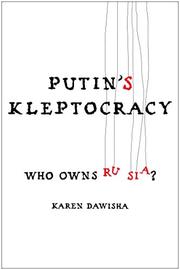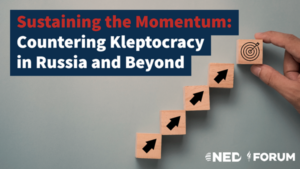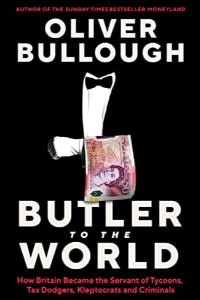New reparations model makes Kremlin kleptocracy pay for Ukraine’s reconstruction
Democracy Digest
October 31, 2022
Ukraine’s post-war reconstruction should be financed by funds sanctioned from the Kremlin’s kleptocrats, argues Azeem Ibrahim, Director of Special Initiatives at the New Lines Institute of Strategy and Policy.
In thirteen legal conclusions, new Multilateral Action Plan on Reparations spells out an international legal process to identify, collect, and distribute sanctioned Russian money, for the benefit of Ukraine, he writes for New Europe:
- Our legal analysis envisages the creation of a new fund and compensation commission, drawing on the precedent of the United Nations Compensation Commission (UNCC) established to compensate Kuwait in the face of Iraq’s invasion in 1990.
- Signatories of this agreement would commit to seize Russian assets within their jurisdiction, in accordance with their national and constitutional requirements, and place them into the fund, for subsequent distribution by the new compensation commission.
- Ukrainians and the Ukrainian state could petition a commission for reconstruction and reparation funds. Once evidence of necessity was produced, the commission could draw on funds gathered by these methods and disburse the money.
 Karen Dawisha’s book Putin’s Kleptocracy noted that hundreds of billions of dollars are paid to regime affiliates in bribery money alone, Ibrahim adds. A creative treaty regime could render those assets available for the fund.
Karen Dawisha’s book Putin’s Kleptocracy noted that hundreds of billions of dollars are paid to regime affiliates in bribery money alone, Ibrahim adds. A creative treaty regime could render those assets available for the fund.
In combination with several U.N. resolutions and a ruling from the International Court of Justice that have found that Russia has waged a war of aggression, the International Law Commission’s Articles on the Responsibility of States for Internationally Wrongful Acts establish the international legal basis for transferring Russia’s reserves to Ukraine, adds Robert Zoellick, a former U.S. trade representative, deputy U.S. secretary of state and World Bank president.
In doing so, the U.S. and allied countries wouldn’t be taking Russian reserves for themselves; they would transfer them to an international fund for compensation. The U.S. should also propose to the U.N. that frozen Russian reserves could finance a U.N. claims commission to compensate low-income countries victimized by Russia’s shock to food supplies, he writes for the Wall Street Journal.
How do we build a truly comprehensive international response to stymie kleptocratic regimes like Russia? asks Ryan Arick, Assistant Program Officer at the International Forum for Democratic Studies.
“Sustaining the Momentum: Countering Kleptocracy in Russia and Beyond” was the focus of a recent event at which experts and practitioners discussed democracies’ collaborative efforts to increase transparency in the financial sector, leverage sanctions against malign actors, and connect anti-kleptocracy actors across sectors. But more needs to be done, not just related to the war in Ukraine, but also in the broader global context where kleptocratic networks can thrive, he writes:
 USAID Executive Director of the Anti-Corruption Task Force Shannon N. Green (@ShannonNGreen1) outlined USAID’s current efforts to meet this challenge, which include the launch of a “de-kleptification guide” and a global support fund for independent journalists.
USAID Executive Director of the Anti-Corruption Task Force Shannon N. Green (@ShannonNGreen1) outlined USAID’s current efforts to meet this challenge, which include the launch of a “de-kleptification guide” and a global support fund for independent journalists.- Nate Sibley (@NateSibley) advocated for a democratic, global economy founded on “friend-shoring,” or increasing coalitions among like-minded countries, to protect vital institutions and reduce vulnerabilities to malign influence.
- As for the professional enabling industries, the U.S. Helsinki Commission’s Paul Massaro (@apmassaro3) urged, if we “can clean those sectors up, we can effectively defang our adversaries.”
- Publish lists of targeted assets, or appoint commissioners to oversee anti-corruption work and serve as points of contact for civil society and others focused on the fight against kleptocracy, said Nikita Kulachenkov (@nekulachenkov).
 Last year, the Biden Administration released a presidential memorandum identifying corruption as a core national security threat; the U.S. Agency for International Development (USAID) launched the Anti-Corruption Task Force; and several pieces of legislation have been introduced to target professions in open societies that enable kleptocrats to hide their illicit funds, Arick adds. RTWT
Last year, the Biden Administration released a presidential memorandum identifying corruption as a core national security threat; the U.S. Agency for International Development (USAID) launched the Anti-Corruption Task Force; and several pieces of legislation have been introduced to target professions in open societies that enable kleptocrats to hide their illicit funds, Arick adds. RTWT
For the past several years, Oliver Bullough, a former Russia correspondent, has guided “kleptocracy tours” around London, explaining how dirty money from abroad has transformed the city, the New Yorker adds. His book, Butler to the World – one of the best of 2022 – argues that the UK actively solicited such corrupting influences, by letting “some of the worst people in existence” know that it was open for business.
